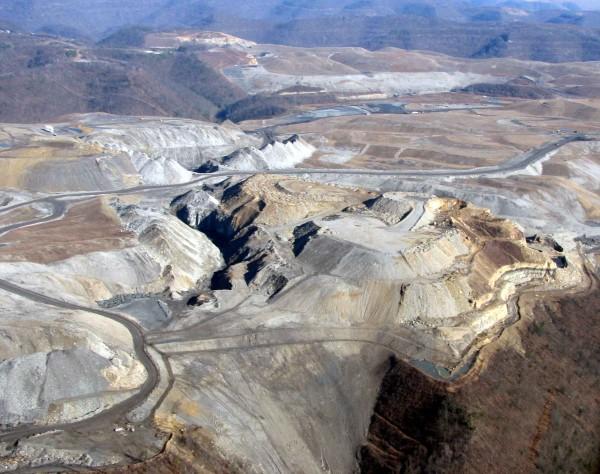In the first seven months of 2017 there have been 10 coal-mining fatalities in our country. The year is just past the halfway mark, and there have already been more deaths this year than in the entire year of 2016. As of right now, we are on track to record more coal-mining fatalities this year than in the previous four years. With coal employment being at an all-time low, that can mean a few things: miners are being more careless, companies are cutting back on safety protocol and maintenance, or safety inspectors at both the state and federal level are cutting back on the attention given to each mine.
As an underground miner, I do know that miners often put themselves at risk with no pressure or persuasion from the company. I have done it more times than I can count, but I was lucky enough to not suffer any serious injuries. I also know that as market values change and profits begin to dwindle, many companies become more lax with safety initiatives and often have to reduce the amount of preventative maintenance done on equipment. All of that does result in an increased likelihood for accidents. I also know that many times mine managers would work out deals with state and federal inspectors to avoid fines and tickets, and sometimes to completely avoid a safety inspection at all. The industry is corrupt from the top down, and it’s no news for anyone who has worked in it.
The problem now is our political climate. We are seeing a steep decline in the coal market values and demand. There are companies cutting benefits to miners and cutting cost wherever possible to continue earning a profit. Now there are politicians and lobbyist groups working to cut environmental and safety regulations in an attempt to keep the coal companies in business, making a profit, and, in turn, keeping that black gold flowing into their political campaigns and pockets.
In 2014, Kentucky State Senator Brandon Smith, a Republican, was talking about EPA regulations on KET, the public TV network. In an attempt to discredit scientific proof of global warming, he said “The temperature on Earth is the same as it is on Mars, yet there are no coal mines on Mars.” This same senator, whom I must mention has never worked a single day in a coal mine, presented in February 2014 Kentucky Senate Bill 224, which would repeal the law mandating that Kentucky mine foremen complete a six-hour annual retraining conducted by the Kentucky Division of Mine Safety. The training cost the company nothing, aside from paying for the foreman’s time. Senator Smith said that allowing the companies to conduct their own training would save the company money while still offering the same training. You do the math, if you want. The company is still responsible for the time that mine foreman spends in training. And, if the company is the one providing the training, they would have to pay for the instructors, too. So the only way to cut cost would be to cut training completely, which I believe is what would have happened.
Then in March of 2016, Kentucky State Senator Chris Girdler, another Republican senator with no mining experience, presented Senate Bill 297, which would cut back on mine safety inspections. Senator Girdler, without knowledge of how the state and federal mine-safety inspections worked together, said: “Instead of coming in and writing you up for doing something wrong, you know, if you’re doing an underground roof-bolt system, maybe I’m gonna come in and say, ‘Hey, keep that elbow down. That way if something falls down, you’re not going to lose your arm.’ As compared to writing up a bulldozer for not having a windshield wiper working when it’s 90 degrees and sunny outside.”
That statement proves his lack of knowledge about roof control plans, operating a roof bolter, and, yes, that bulldozers and surface mining equipment do need windshield wipers on a 90-degree sunny day because dust and debris can cover the windows and create dangerous visibility problems.
Not long after that, West Virginia Republicans jumped on the wagon by proposing the same cuts to safety inspections in their state. To make matters worse, West Virginia’s governor is Jim Justice, who has made his billions on the blood and sweat of the miners in Central Appalachia.
Now, after the presidential election, we have the president and Republicans in Kentucky, Ohio, West Virginia, Virginia, plus coal lobbyists and coal-corporation billionaires fighting to repeal a rule that would strengthen enforcement of safety standards on mines that repeatedly violate safety rules. The rule they want to set aside came after one of our nation’s most recent and largest mining disasters — the 2010 Upper Big Branch explosion which killed 29 miners in West Virginia. Similar regulation took place after the Scotia Mine Disaster of 1976, which happened in my home county of Letcher County, Kentucky. Shortly after that disaster, Congress and President Jimmy Carter enacted the Federal Mine Act of 1977, which revolutionized mine safety regulation and has protected the lives of miners ever since.
As a nation, we need to take notice of the rising number of coal mine fatalities. We need to understand the correlation between those deaths and our political environment. The only thing different between this year and previous years is that our political leaders, their lobbyist friends, and the billionaire coal tycoons are cutting safety regulations in order to make an additional dollar.
As a co-worker once gave me some advice. “This damned job don’t do you a bit of good if you’re dead,” he said. “Now don’t cut no corners, don’t do anything that don’t feel right, and if you get pressure from the boss man, just tell him to go eat sh– because if they fire you, you’re better off eating government cheese than pushing up daisies.”
Gary Bentley is a former underground coal miner from Eastern Kentucky. You can read his stories of working underground here.
This story was originally produced by our publishing partner The Daily Yonder.



